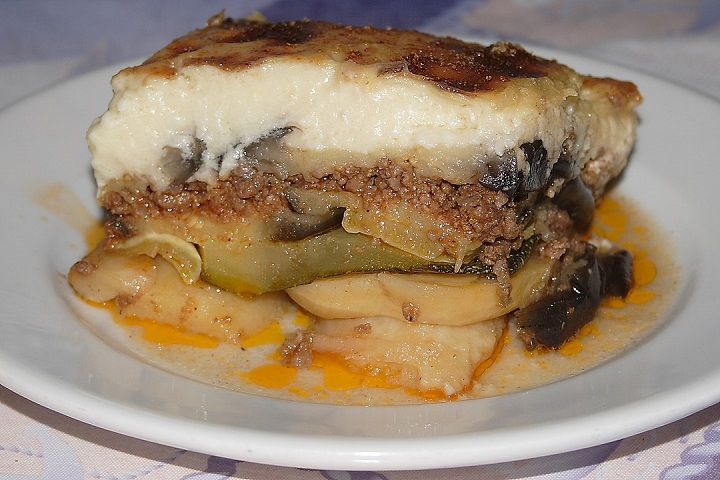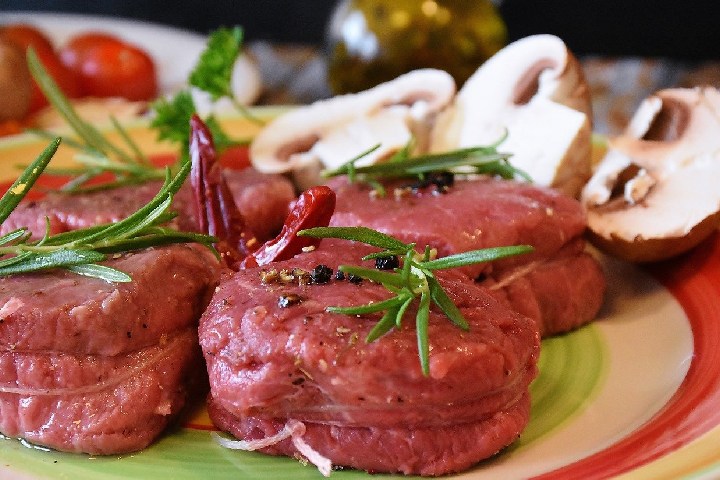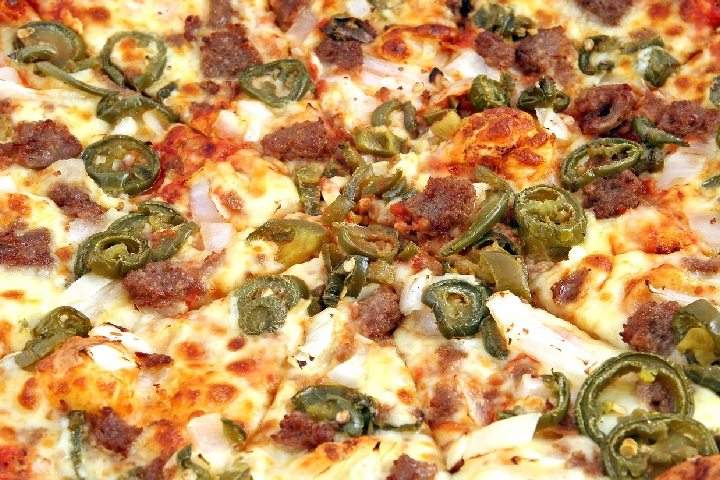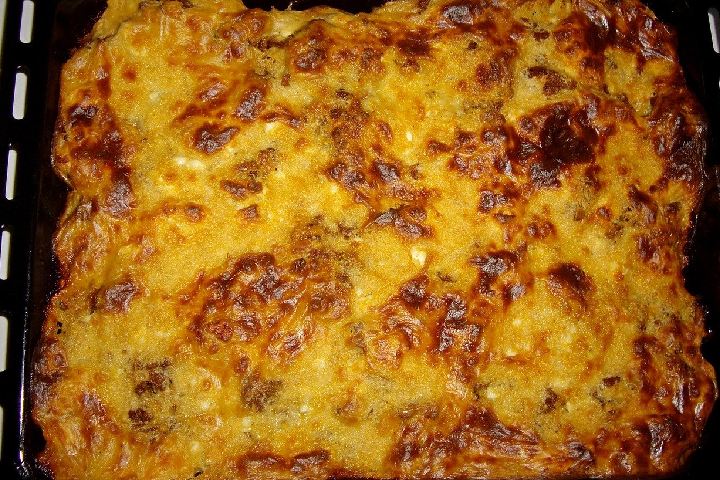Musaka (Moussaka) is a layered oven casserole recipe made with greens and meat. The most notable version of moussaka is made with layers of eggplant cuts, cheese, and meat ketchup, topped with a thick béchamel sauce; however, other favorites call for potatoes zucchini, a combination of vegetables. More recently, a meatless (veggie lover) variant has also become broadly available.
Until the early 1900s, Musaka (Moussaka) was a more simple dish, utilizing just vegetables and meats. The addition of béchamel sauce is attributed to Nikos Tselementes, a Greek chef who trained in France, and this newer version quickly became a favorite in Greece.
Table of Contents
1. Why Do People Like Musaka (Moussaka)?
Musaka is to Turkey and the Greek peninsula what Spaghetti and lummox (meatballs) are to Americans. It is a quintessential dish that each individual from these parts has tried. The dish has a crunchy top; however, the sauce is the thing that brings out all the flavors.

Source: Wikipedia
Persons like Musaka (Moussaka) taste like an exotic version of lasagna (without the pasta). Also, it is very healthy because it has all green vegetables. It takes all over 2 to 3 hours to cook and, depending on the size of the pot or casserole, it can efficiently serve 6 people. Thus, it makes for an ideal family meal.
2. The Nutritions of Moussaka Recipe
Calories:
Mousaka is a calorie-heavy food, as 1 cup of cooked mousaka gives 550 calories. This amount comprises excess than 27 percent of every day’s recommended intake of 2,000 calories. Eating mousaka isn’t ideal for slimming down, as it would grasp about 57 minutes to cleans the calories in 1 cup of this nourishment.
Fats:
Mousaka is calorie-thin because it is high in fat. Each 1 cup serving of mousaka gives 40 g of fat. According to the American Heart Association, you must restrict your day-by-day fat taking to between 55 g and 75 g, so 1 cup of moussaka gives somewhere in the range of 57 and 80% of your total daily fat intake 3.
Carbohydrates:
A serving of oatmeal provides advantageous Carbohydrates for athletes and other active people, as they are your body’s primary source of fuel.
Dietary Fibers:
A serving of moussaka gives 5 g of dietary fiber, a supplement essential for proper health 4. Dietary fiber may assist you in managing your cholesterol and glucose levels, keep your stomach-related system healthy, and the nutrient also boosts regular bowel movements and feelings of fullness.
Proteins:
Ground beef is wealthy in protein, so Musaka (Moussaka) is a high-protein dish. A serving of this dish gives 25 g of protein, multiple four times the amount in an egg. Protein builds and restores your body’s tissues, so it’s essential to consume protein every day.

Cholesterol:
Moussaka may not be perfect for heart health because it’s wealthy in cholesterol. Each cup provides 130 mg, which is 65 percent of the 200 mg suggested as a daily limit by the National Heart, Lung, and Blood Institute. A lot of cholesterol may increase your risk of heart illness.
Sodium:
Moussaka contains a great deal of sodium, with 1,160 mg in each cup. This amount includes half of the daily suggested intake. An excessive amount of sodium may prompt increased blood pressure, a danger factor for heart illness.
3. Musaka (Serbian Potato Moussaka) Recipe
Ingredients:
- 1/4 cup olive oil
- 4 pounds russet potatoes
- 1 medium onion chopped
- 1 pound ground beef or pork
- salt and pepper to taste
Topping:
- 4 eggs
- 1 cup yogurt or sour cream
- 2 cups of milk
- salt and pepper to taste
Instructions:
- Peel the russet potatoes and cut into 1/4 inch (no larger) thin circles.
- In a huge pan, drizzle olive oil over medium warmth. Add onions and cook, often blending, until lightly browned. Mix in ground meat, breaking up with a spoon, and season with salt and pepper.
- Keep cooking and breaking separated the beef till browned.
- Warm up the microwave to 400 degrees F and grease a 9×13 inch cooking dish with olive oil.
- Layer half of the cut potatoes, about 2 layers, on the bottom of the prepared dish. Season with salt and pepper.
- Cover with the cooked ground meat. Layer the leftover potatoes, another 2 layers.
- In an average bowl, whisk together eggs, yogurt, milk, salt, and pepper. Pour uniformly over the potatoes until it is right below the top layer.
- Bake in the preheated oven until potatoes are tender and the top is golden brown, about 1 hour. Broil, if desired, to crisp the top further.
- Let sit for 10 minutes before cutting up and serving.
4. Beef Musaka (Moussaka) Recipe
This low-fat casserole relies on flavorings, tomato paste, wine, and vinegar for flavor instead of the ton of cheese (and fat) initiate in regular moussaka recipes.
Ingredients:
- Vegetables
- Cooking spray
- 1 pound Asian eggplants, unskinned, cut into 1-inch slices
- 1 pound Yukon gold potatoes, unpeeled, sliced into 1/2-inch slices
- 2 tablespoons olive oil
- Kosher salt and freshly ground black pepper
Meat Sauce:
- 1 tablespoon olive oil
- 1/2 medium yellow onion, sliced
- 1 tablespoon of tomato paste
- 1/2 teaspoon of dried oregano
- 1/4 teaspoon ground cinnamon
- 1/4 teaspoon powdered garlic
- 1/4 teaspoon ground ginger
- 1 pound lean ground beef
- 1/2 cup of red wine
- 2 tablespoons red wine vinegar
- Kosher salt and freshly ground black pepper
- 1/4 cup slashed fresh flat-leaf parsley, plus more for garnish
Bechamel:
- 2 cups of 1-per cent milk
- 1/4 of cup all-purpose flour
- Pinch nutmeg
- Kosher salt
- 1 cup grated Parmesan
- Cooking spray
Beef Moussaka Recipe Instructions
Reheat the oven to 400 degrees F.
Spray a rimmed baking sheet with cooking spray. Toss the eggplants, potatoes, olive oil, 1/2 cup water, 1/2 teaspoon each rock salt and pepper in an enormous bowl, then spread the vegetables on the preparing sheet. Roast until tender, about 45 minutes, tossing the greens about halfway through. Set aside.
Meanwhile, make the Meat Sauce.
Warm the olive oil in a big nonstick pan over medium heat. Add the onions and cook, mixing, until soft and starting to brown, 5 to 7 minutes. Add the tomato pulp, oregano, cinnamon, garlic, and ginger; mix rapidly to toast flavors uniformly.
Once fragrant, add 1/2 cup of water to the dish and mix to merge, scraping up any brown bits. Add the beef to the pan, starting with a wooden spoon to split it up, and cook until gently browned 8 to 10 minutes. Add up the wine, vinegar, 1 teaspoon salt, and a little grinds of pepper.
Cook until the meat is thoroughly prepared and the juices are reduced slightly to about 5 minutes. Eliminate from the heat, mix in the parsley, and set aside.

Make the Bechamel
Put the milk and flour in a little saucepan and whisk until the flour is solvate. Place the pan over moderate hotness and whisk continuously until the mixture combination reaches a boil; keep to whisk until thick enough to coat the back of a spoon, 10 to 12 minutes.
Add up the nutmeg and 1/2 teaspoon salt. Remove from the warmth and whisk in 3/4 cup of the Parmesan; set aside.
Collect the Musaka (Moussaka)
Spray a 3-quart baking dish with cooking spray. Spread the eggplants and potatoes in the lower part of the dish, layer the meat sauce uniformly over the greens, top with the bechamel and sprinkle with the remaining 1/4 cup of Parmesan. Bake, uncovered till the upper part is browned and faintly puffed for 35 to 40 minutes. Decorate with parsley and serve hot.
Make-Ahead Tip
The unbaked casserole can be covered and refrigerated overnight before baking. The baked prepared dish can be frozen for about 14 days; cover with foil and reflame at 350 degrees F until hot, 35 to 45 minutes.

